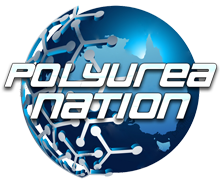Durability. Polyurea isn’t just a thick, rubbery material with a very high degree of flexibility; it’s also highly water and organic resistant. It’s also very temperature and weather resistant, too.
Temperature tolerance. Polyurea coating is commonly used for many applications, including industrial coating, flooring, roofing, insulation and sealants. It can withstand extreme temperatures, including those experienced by the structure of the building or other equipment. Polyurea can also withstand humidity, which makes it a very valuable coating in environments that experience extreme environmental conditions such as hurricanes, heavy rain, drought or the ocean’s salty air.
Water resistance. Polyurea is highly porous in nature, and not particularly well protected from precipitation. However, when water vapor is breathed in (especially by the vehicle), then this porous surface is created a barrier for moisture in the atmosphere to escape into the structure. This is accomplished through the fine porous surfaces that polyurea coating has, allowing air and moisture to move freely through the material without being hindered. It also creates a unique chemical reaction with water that creates a reaction which changes the molecular charge of the surrounding water, causing it to become more highly resistant to water corrosion.
Spray application. Polyurea coatings are applied by either a spray gun or by using a hand-held device known as a “spill kit”. These materials are generally supplied with polyurea coating and all the necessary tools to apply it correctly. All polyurea protective coatings are not effective on all surfaces – you should consult your owner’s manual or contact the manufacturer before application.
Truck bed liners. Polyurea can also be used in the lining of pickup trucks. The polyurea coating used in truck bed liners is very similar to the polyurea coating used on boats and ships. The truck bed liners provide the same types of protection. The primary difference is that polyurea is not soluble in oil and other solvents, so these liners will not damage if the truck’s oil is spilled or if the truck is subjected to extreme weather conditions (or a combination of both).
Applications using polyurea coatings are commonly those that are exposed to moisture because they often contain a waxy moisture cure. There are a variety of polyurea formulations that can be utilized in these applications, including; isocyanates, polyurea polymers, polyureas, resin-based polyurea, and polyureas with isocyanate. Isocyanates and polyurea with isocyanate are most often used in cosmetic products and other polyurea formulations. The addition of an isocyanate or an amine will initiate the chemical reaction that forms the polyurea coat. Amine and isocyanate are usually mixed together to form a thick, clear and viscous emulsion that is sensitive to heat, chemicals and moisture.

